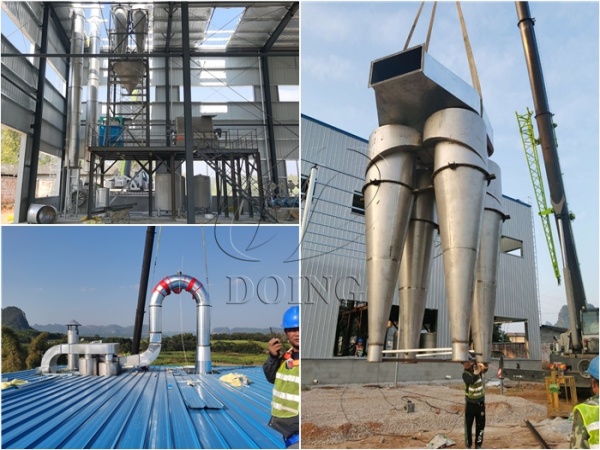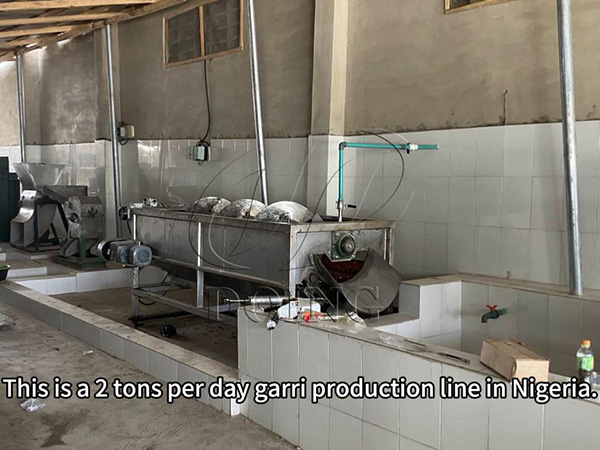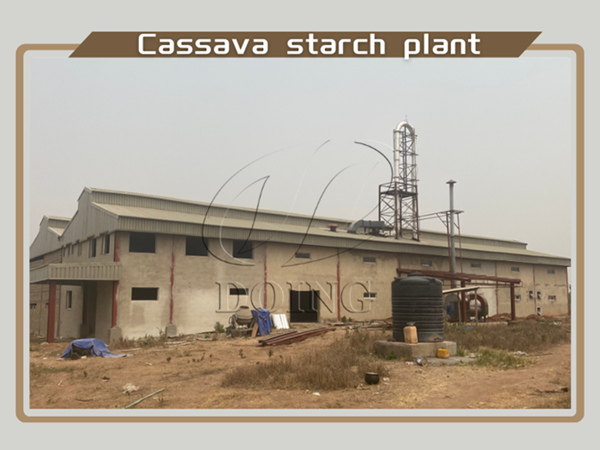
Standards for High Quality Cassava Flour and Guidelines for Cassava flour Production
FAQ/ Chat online/ Leave a message/ October 28, 2023
High quality cassava flour (HQCF), with lower price, is regarded as an ideal substitute of wheat flour. Moreover, its wide applications like being used to make bread, beverage, and biscuits and its huge potential market in some African countries attract many investors enter this cassava flour processing field. But what are standards for cassava flour and guidelines for cassava flour production? Now let's discuss them in this article.
Standards for High Quality Cassava Flour:
Moisture Content: Typically, cassava flour should have a moisture content of around 13% or lower.
Starch Content: The starch content of standard cassava flour should be high, usually above 60%.
Color: The cassava flour should have a white or off-white color, indicating a high level of purity.
Particle Size: The final cassava flour should have a fine texture with particle sizes ranging from 60 to 200 mesh; the percentage by mass of good quality cassava flour that passes through a 60 mesh sieve shall not be less than 95%;
Impurities: High quality cassava flour shall be practically free from impurities which shall not exceed 10 µg/100 cm2.
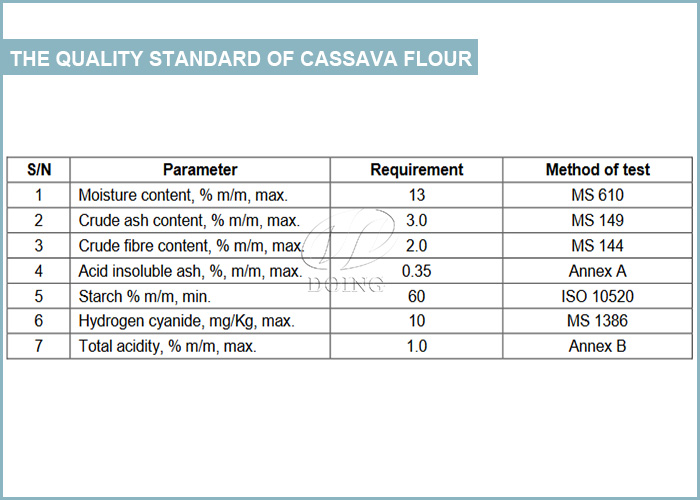 Standards for high quality cassava flour
Standards for high quality cassava flour
Guidelines for cassava flour production:
Cleaning and Washing: Cassava roots should be thoroughly cleaned and washed by cassava cleaning machines (mainly are a dry sieve and a paddle washer) to remove dirt, sand, and other impurities.
Peeling: The outer skin of the cassava roots should be removed using mechanical peelers or manual methods to ensure the food safety.
Cutting and Grating: The peeled cassava roots shall be firstly cut into small pieces by a cassava cutter and then be grated into slurry by a cassava grater. This process will ensure the flavor and texture of cassava flour as well as improving the productivity.
Dewatering: The grated or crushed cassava pulp is then dewatered using hydraulic presses or mechanical methods to remove excess water.
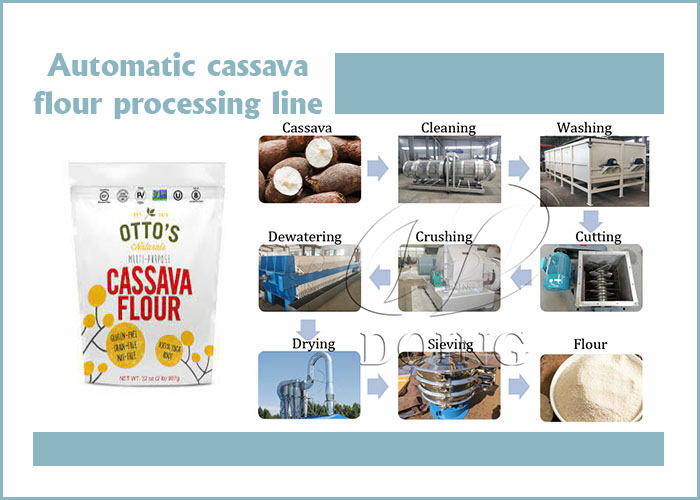 Guidelines for cassave flour production
Guidelines for cassave flour production
Drying: Using hot air dryers or sun drying methods can help to reach the desired moisture content. Generally speaking, the moisture content after the drying process of a flash dryer can less than 12%.
Sieving: A sieve is necessary to make sure the cassava flour to achieve a uniform particle size. Normally, the particle size of qualified cassava flour is about 60mesh to 200 mesh.
Packaging: The cassava flour is packaged in appropriate containers, such as bags or sacks, to ensure proper storage and transportation.
Hope this introduction to stands for high quality cassava flour and guidelines for cassava flour production can give you some reference. We are Henan Jinrui, a professional manufacturer of cassava processing machines for starch, flour, garri, and chips. If you want to learn more details about the machinery, sincerely welcome to discuss with us!
Leave A Message
- Do you want to buy machine?
- Yes, I want to buy machine
- No, I want to learn more in advance.
- What is your raw material?
- Cassava
- Potato
- Sweet potato
- Other:
- What is the final product you want to produce?
- Chips
- Flour
- Starch
- What is the final product you want to produce?
- Garri
- Cassava flour
- Cassava starch
- Cassava chips
- Attiekie
- Bammy
- Other:
- What is your planned capacity for final product?
- <1 ton per day
- 1 ton per day
- 2 tons per day
- 3 tons per day
- 3-10 tons per da
- 10-20 tons per day
- >20 tons per day
- What is the usage of your cassava chips?
- Food usage (like fried chips, flour)
- Industrial usage (like animal feeds, ethanol)
- What is your planned capacity for final product?
- <5 ton per hour
- 5-10 tons per hour
- >10 tons per hour
- What is your planned capacity for final product?
- <500 kg per hour
- 0.5-5 ton per hour
- 5-10 ton per hour
- >10 ton per hour
- What is your planned capacity for final product?
- <300 kg per hour
- 300-1000 kg per hour
- 1-5 ton per hour
- 5-10 ton per hour
- >10 ton per hour

